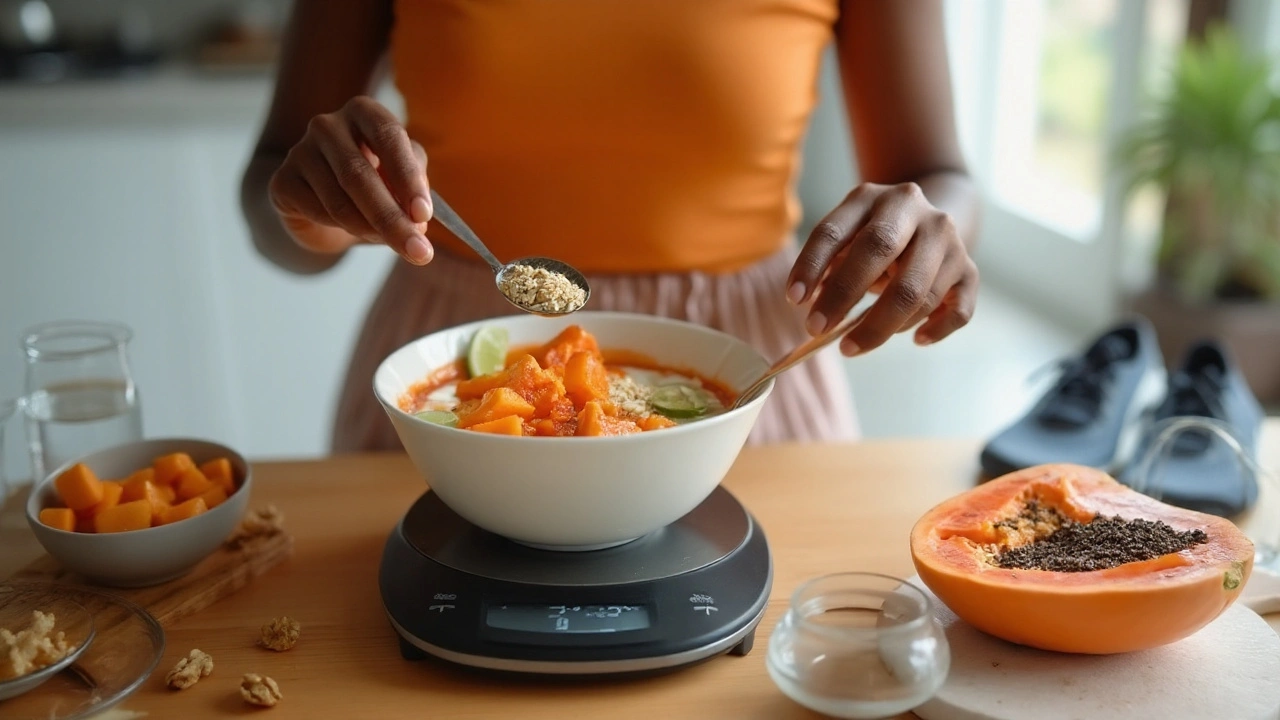Papain is a natural protein‑breaking enzyme that comes from the fruit of the papaya tree. Your stomach uses enzymes to turn food into nutrients, and papain adds extra power to that process. When you take it as a supplement or eat fresh papaya, it helps break down proteins faster, which can ease digestion and reduce bloating.
Besides the gut, papain is popular in skin care because it gently removes dead cells. This “exfoliating” action can smooth rough patches and support clearer skin without harsh chemicals. The same protein‑cutting ability also makes papain useful for wound cleaning, as it helps clear debris and may speed up healing.
Most people reach for papain when they feel heavy after a meat‑heavy meal. A capsule with 500–1000 mg taken before eating can help break down the protein, so you feel lighter and less gassy. Athletes sometimes add it to post‑workout shakes to aid muscle recovery because it reduces protein buildup in the gut.
In the beauty aisle, papain shows up in facial masks, peels, and cleansers. A few minutes of a papain mask can lift away dead skin, leaving you with a smoother surface ready for moisturizer. If you have minor cuts or scrapes, a diluted papain solution can be applied to keep the area clean and support faster tissue turnover.
Some natural‑medicine fans use papain for sinus relief. A few drops in warm water, inhaled as steam, may thin mucus thanks to its protein‑breaking action. While not a cure, many report easier breathing during colds or allergies.
Papain is safe for most adults when taken at recommended doses, but it can cause stomach upset if you overdo it. Start low—around 250 mg before a meal—and see how your body reacts. If you tolerate it well, you can increase to 500–1000 mg per serving.
People with ulcer ulcers, bleeding disorders, or who are on blood‑thinners should talk to a doctor first. Papain can thin blood slightly, so mixing it with warfarin or aspirin may raise bleeding risk. Pregnant or nursing moms should also check with their healthcare provider before adding papain supplements.
When choosing a product, look for standardized extracts that guarantee a certain amount of active enzyme. Avoid products with unnecessary fillers or artificial colors. Fresh papaya is the cheapest natural source—just blend a cup of ripe fruit into a smoothie for an instant enzyme boost.
Remember, papain isn’t a magic cure‑all. It works best as part of a balanced diet that includes fiber, water, and regular meals. Pair it with probiotic foods like yogurt to keep your gut microbiome happy, and you’ll get the most out of this handy enzyme.
Bottom line: papain can aid digestion, support skin health, and help with minor wound care when used correctly. Start small, watch for any irritation, and consult a professional if you have existing health conditions. With the right dose, papain is a simple addition that can make everyday life feel a little smoother.

Papaya won't burn fat by magic, but it can make weight loss easier. Learn the science, smart portions, recipes, and safety tips to use papaya for lasting results.
Read More© 2026. All rights reserved.